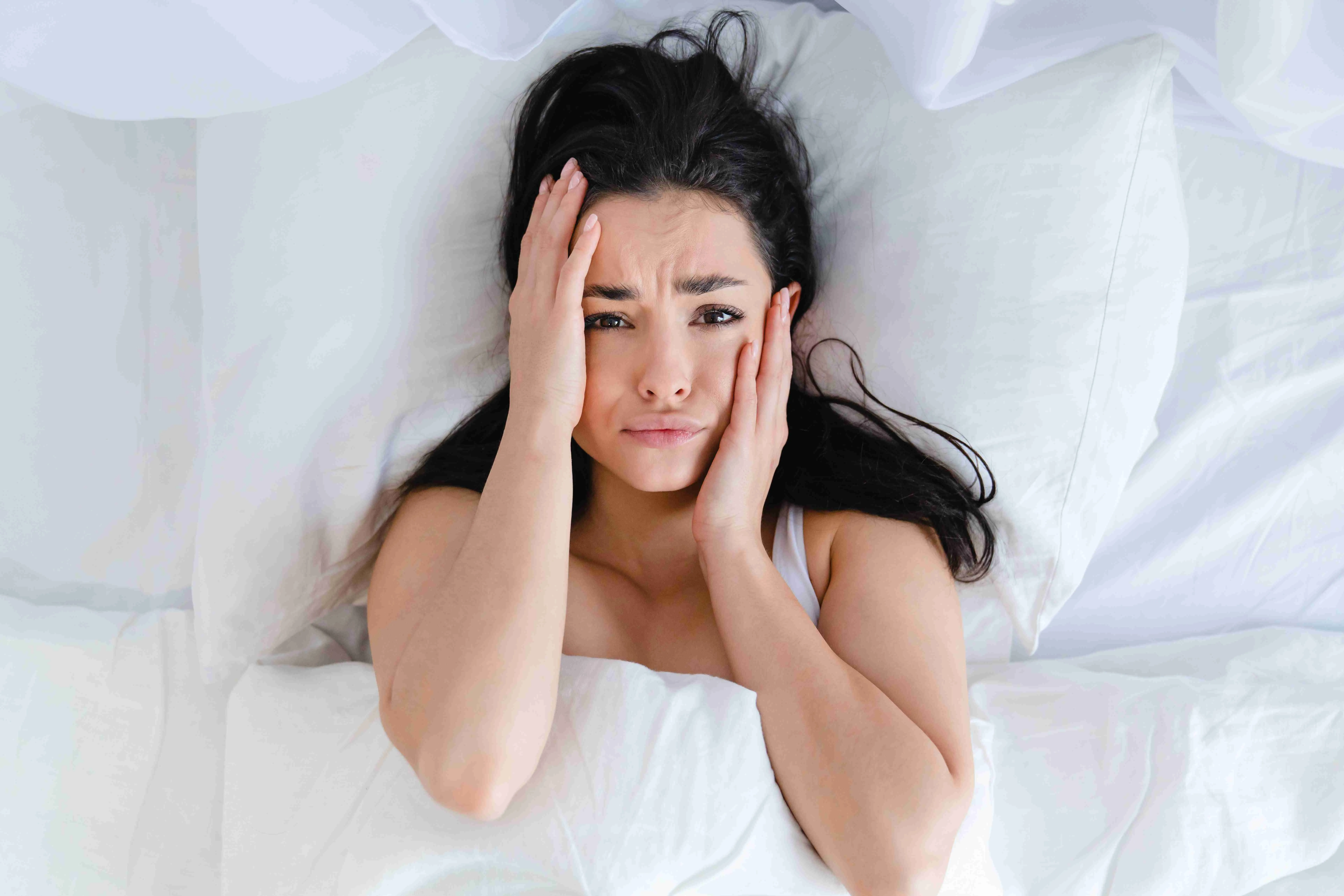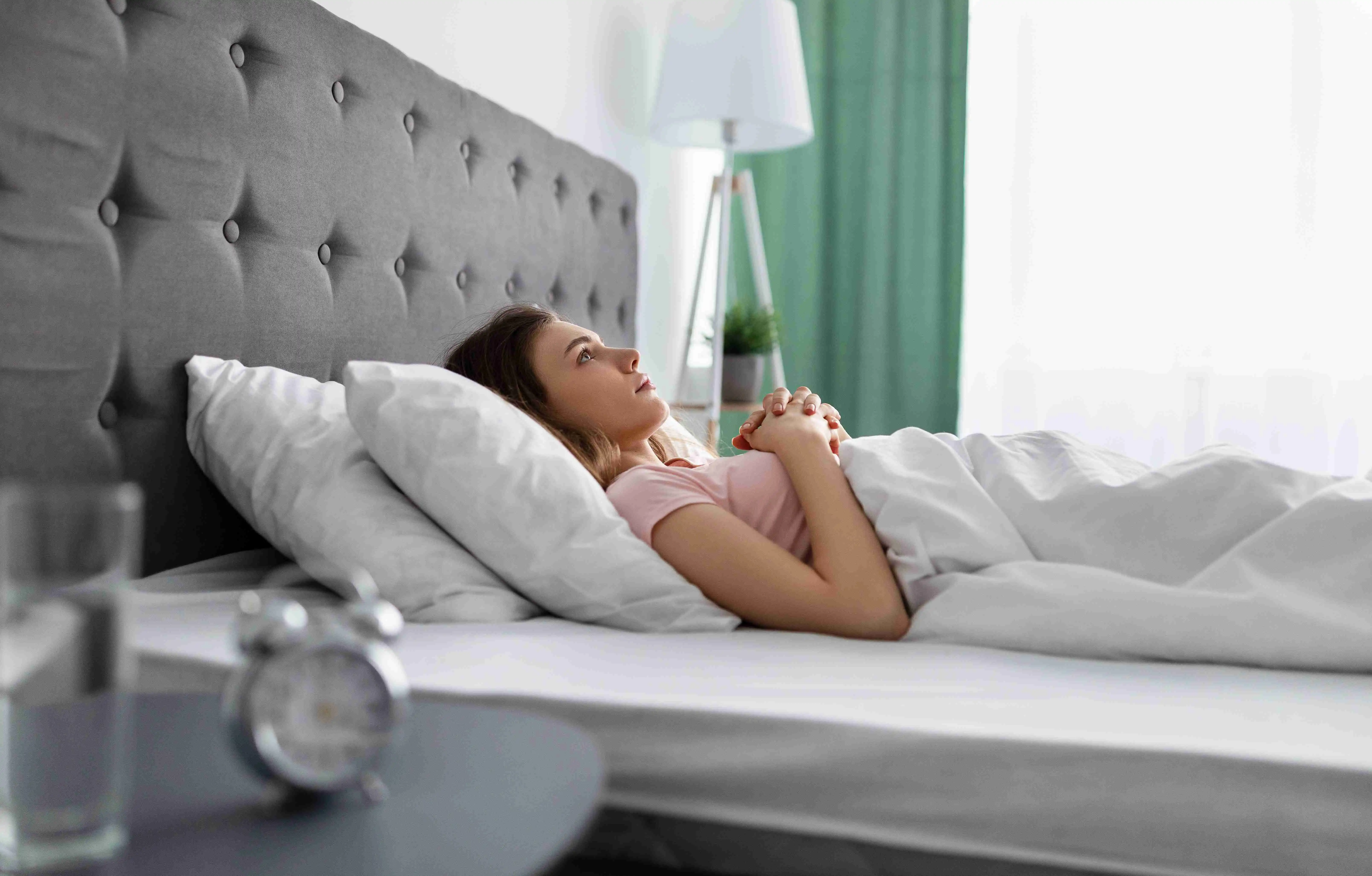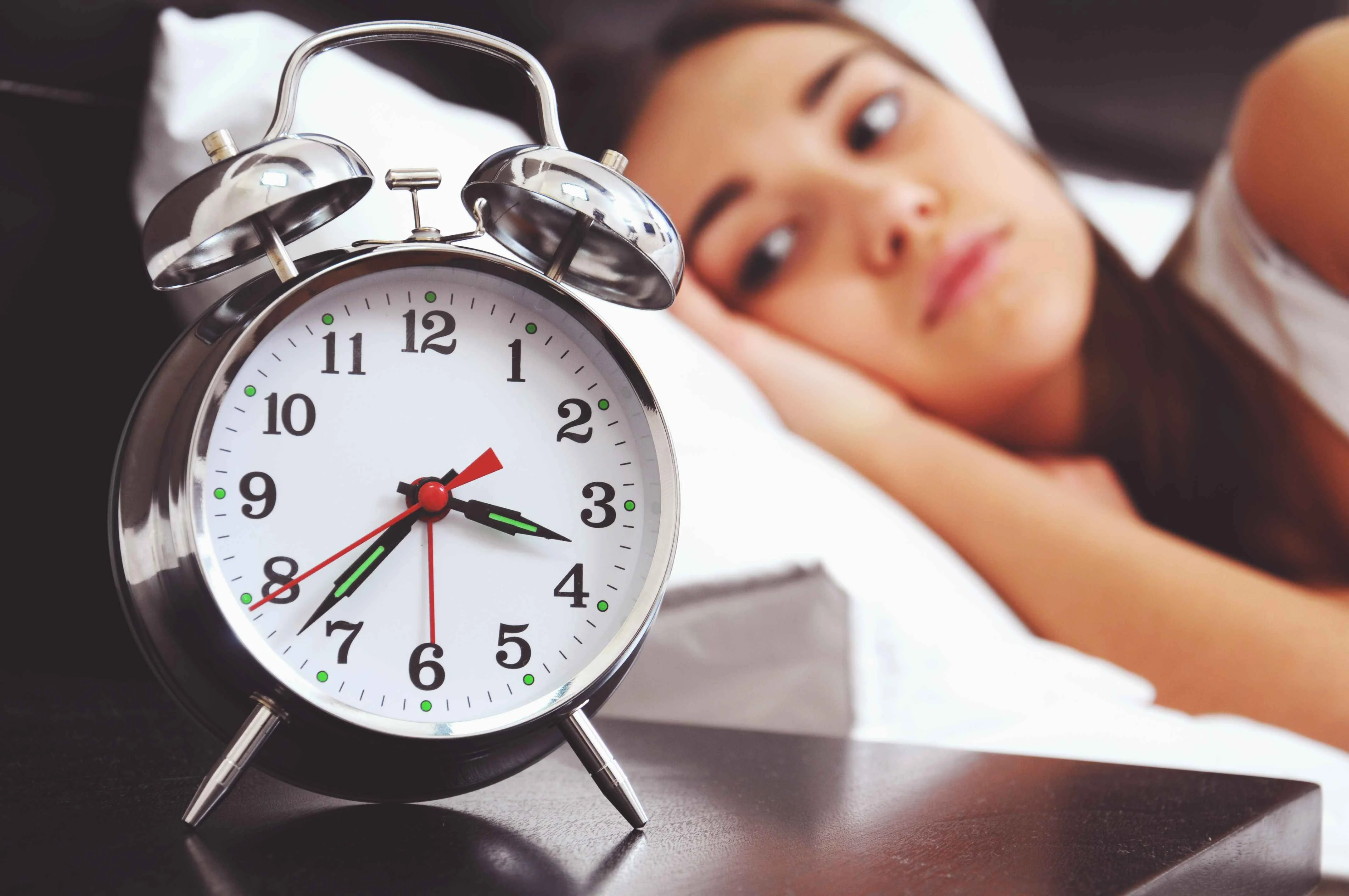Non 24-Hour Sleep Wake Disorder is a rare and often misunderstood condition that challenges conventional sleep, profoundly impacting the lives of those affected. In this article, we delve into the details of Non-24; we'll uncover its symptoms, effects, and treatment.
What is Non 24-Hour Sleep Wake Disorder?
Non 24-Hour Sleep Wake Disorder, also known as sleep wake cycle disorder or Non 24-or Free-Running Disorder, is a circadian sleep disorder that affects an individual's sleep-wake cycle. Unlike the typical 24-hour cycle, individuals with Non 24-experience a longer internal clock, usually around 25 hours. This mismatch between the body's internal clock and the external 24-hour day can lead to significant sleep disturbances and disruptions in daily life.
The body's internal clock synchronizes with the external cues of light and dark, known as zeitgebers, in a typical sleep-wake cycle. However, for those with Non-24, the internal clock fails to align with these external cues, resulting in a constantly shifting sleep-wake pattern. This condition is more prevalent in individuals who are completely blind or have no light perception, as the primary zeitgeber, light, cannot reset their internal clock.
How Non 24-Differs from Other Circadian Sleep Disorders
Non 24-Hour Sleep-Wake Disorder (Non-24) distinguishes itself from other circadian rhythm sleep disorders primarily by having a consistently shifting sleep-wake cycle.
Unlike conditions such as Delayed Sleep Phase Disorder (DSPD) or Advanced Sleep Phase Disorder (ASPD), where the sleep schedule is fixed but misaligned with societal norms, Non 24-involves a progressive daily delay in sleep onset and wake times.
While DSPD and ASPD patients maintain a stable (albeit shifted) 24-hour rhythm, individuals with Non 24-typically have an internal body clock that runs longer than 24 hours, often around 24.5 to 25 hours. This causes their sleep times to drift later each day, creating a unique challenge in maintaining consistent daily routines and social schedules.
Causes of Non 24-Hour Sleep-Wake Syndrome

The primary cause of Non 24-Hour Sleep Wake Disorder is the inability of the body's internal clock, or circadian rhythm, to synchronize with the 24-hour day-night cycle. This can occur due to various factors, including:
Blindness or Impaired Light Perception
Non 24-is most commonly observed in individuals who are blind or have severely impaired light perception. The absence of light cues, which are crucial for regulating the circadian rhythm, can lead to the development of this disorder.
For sighted individuals, light exposure, particularly to blue light, helps reset the internal clock daily. However, without this input, the body's natural rhythm tends to drift, typically extending beyond 24 hours.
Genetic Factors
Genetic variations can play a role in the development of Non-24, even in sighted individuals. Some people may have mutations in genes responsible for regulating circadian rhythms, such as: Clock genes (e.g., CLOCK, BMAL1), Period genes (PER1, PER2, PER3), and Cryptochrome genes (CRY1, CRY2). These genetic variations can affect the body's ability to maintain a 24-hour cycle, leading to Non 24-symptoms.
Brain Injuries or Neurological Conditions
Damage to specific areas of the brain, particularly the suprachiasmatic nucleus (SCN) in the hypothalamus, can disrupt the body's ability to regulate its circadian rhythm.
The SCN acts as the body's master clock, and injuries or conditions affecting this region can lead to circadian rhythm disorders, including Non-24. Some neurological conditions that may contribute to Non 24-include traumatic brain injuries, tumors involving the hypothalamus, and Neurodegenerative diseases.
Environmental Factors
Some environmental factors, even though they are less common, can cause or make Non 24-worse. This is especially true for people who are more likely to have circadian rhythm disorders because they have irregular sleep schedules (for example, because they work shifts or travel between time zones a lot), do not get enough natural light, or are exposed to too much artificial light, especially blue light from electronics at night.
Non 24-Hour Sleep Wake Disorder Symptoms
The primary symptom of Non 24-Hour Sleep Wake Disorder is a progressive delay in the sleep-wake cycle. Individuals with this condition experience a gradual shift in their sleep patterns, with their sleep and wake times continuously moving later each day. This shift can lead to a wide range of symptoms, including:
Difficulty Falling Asleep
People with Non 24-often struggle to fall asleep at conventional times. As their internal clock drifts, they may find themselves unable to sleep during typical nighttime hours, leading to prolonged periods of wakefulness when they're expected to be asleep.
Excessive Daytime Sleepiness
When the body's internal clock is out of sync with the external environment, individuals may experience intense drowsiness during the day, which can also be due to excessive sleepiness or hypersomnia.
This can occur even if they've had a full night's sleep, their body believes it's nighttime when it's daytime.
Difficulty Concentrating
The misalignment between the internal clock and the external world can lead to cognitive difficulties. Individuals may struggle with focus, attention, and mental clarity, especially during times when their body clock indicates they should be sleeping.
Mood Disturbances
Non 24-can significantly impact mood. Individuals may experience irritability, depression, or anxiety, particularly when trying to conform to societal norms that conflict with their internal rhythms.
Gastrointestinal Issues
The circadian rhythm influences various bodily functions, including digestion. As a result, people with Non 24-may experience stomach discomfort, changes in appetite, or irregular bowel movements.
Headaches or Migraines
The constant misalignment of sleep-wake cycles can trigger headaches or migraines in some individuals. These may be particularly prevalent during periods of forced wakefulness or sleep.
Sleep Deprivation
When individuals with Non 24-try to maintain a conventional schedule, they often experience chronic sleep deprivation. This can lead to a host of secondary symptoms, including weakened immune function, increased risk of accidents, and impaired cognitive performance.
Social and Occupational Impairment
The constantly shifting sleep schedule can make it extremely challenging to maintain regular work hours, social engagements, or daily routines. This can lead to social isolation, job loss, and difficulties in personal relationships.
Treatment Options for Non 24-Hour Sleep Wake Disorder

While there is no definitive cure for Non 24-Hour Sleep Wake Disorder, several treatment approaches can help manage the symptoms and improve the overall quality of life for individuals with this condition. The most effective treatment plan often involves a combination of strategies, which may include:
Light Therapy
Light therapy is a key treatment for Non-24, especially for sighted individuals. It involves exposure to bright light at specific times to help reset the body's internal clock. Using a light box that emits intense light mimicking natural sunlight, sessions typically last 30 minutes to 2 hours.
A sleep specialist should consider the individual's unique circadian rhythm when determining the timing of light exposure.
Melatonin Supplementation
Melatonin, a hormone that the body naturally produces to control sleep-wake cycles, is a supplement that can help manage Non-24. The timing of melatonin administration is critical and should be carefully coordinated with a healthcare provider.
Dosage typically ranges from 0.5 to 5 mg, often taken a few hours before the desired bedtime. It can be used in conjunction with light therapy for enhanced effectiveness.
Chronotherapy
Chronotherapy involves gradually shifting sleep times to align with the desired schedule. This method can be challenging and time-consuming but may be effective for some individuals.
It typically involves systematically adjusting sleep and wake times, often shifting the schedule later by 1-2 hours each day. Strict adherence to the shifting schedule is required, and it may be combined with light therapy and melatonin supplementation.
Lifestyle Modifications
Implementing certain lifestyle changes can support the management of Non 24-and improve overall sleep quality.
These may include maintaining a consistent sleep environment (dark, quiet, comfortable), limiting exposure to blue light from electronic devices before bedtime, engaging in regular physical activity, and practicing good sleep hygiene. Developing a relaxing sleep routine can also be beneficial. More details are discussed in the next section.
Medications
In some cases, prescription medications may be used to manage symptoms of Non-24, particularly when other treatments have been ineffective. Tasimelteon (Hetlioz) is FDA-approved for Non 24-in blind individuals.
Sedative hypnotics may be prescribed for short-term use to manage insomnia, while stimulants might be used to address excessive daytime sleepiness. A healthcare professional should carefully monitor medication use.
Living with Non 24-Hour Sleep Wake Disorder

Coping with Non 24-Hour Sleep Wake Disorder can be challenging, as it can significantly impact an individual's daily life and overall well-being. Here are some strategies that can help manage the disorder and its effects:
Establish a Consistent Routine
While maintaining a regular sleep schedule may be difficult, establishing a consistent daily routine can help anchor other activities. This includes regular meal times, exercise, and social interactions, which can provide structure to your day regardless of your sleep-wake cycle.
Practice Good Sleep Hygiene
Implement good sleep hygiene practices to optimize sleep quality when you can sleep. This includes creating a comfortable sleep environment, avoiding stimulating activities before bedtime, and limiting caffeine and alcohol intake.
Manage Light Exposure
Strategically manage light exposure to help regulate your circadian rhythm. Use blackout curtains or eye masks during your sleep phase, and seek bright light exposure during your wake phase, even if it's not aligned with the typical day-night cycle.
Stay Active and Engaged
Engage in activities that keep you mentally and physically stimulated during your wake periods. This can help combat fatigue and maintain overall health, even when your schedule doesn't align with societal norms.
Seek Support
Connect with support groups or online communities for individuals with Non-24. Sharing experiences and coping strategies with others who understand your challenges can be incredibly beneficial.
Educate Others
Inform family, friends, and employers about your condition. Helping them understand the nature of Non 24-can lead to greater empathy and accommodation in personal and professional settings.
Maintain a Positive Mindset
Focus on the aspects of your life you can control. Cultivate resilience and adaptability, recognizing that while Non 24-presents challenges, it doesn't define you as a person.
Prioritize Self-Care
Make self-care a priority. This includes maintaining a balanced diet, staying hydrated, and engaging in relaxation techniques like meditation or yoga to manage stress associated with the disorder.
Plan Ahead
When possible, plan important activities or appointments during your typical wake periods. Use scheduling tools to keep track of your shifting sleep-wake cycle and plan accordingly.
Practice Mindfulness
Incorporate mindfulness techniques to help manage the emotional and psychological impacts of living with a chronic sleep disorder. This can improve overall well-being and help in coping with the unpredictability of Non-24.
FAQs
Is non 24-hour sleep wake disorder a rare condition?
Non 24-is considered a rare disorder, affecting approximately 1 in 2 million individuals in the general population. However, it is more prevalent among individuals who are completely blind or have severely impaired light perception, affecting up to 70% of this population.
Can non 24-hour sleep-wake disorder be cured?
Currently, there is no definitive cure for Non 24-Hour Sleep Wake Disorder. However, various treatment approaches, such as light therapy, melatonin supplementation, and chronotherapy, can help manage the symptoms and improve the overall quality of life for individuals with this condition.
Is non 24-hour sleep-wake disorder a permanent condition?
In most cases, Non 24-Hour Sleep Wake Disorder is a chronic condition that requires ongoing management. However, in some instances, the disorder may resolve if the underlying cause (e.g., brain injury or environmental factors) is addressed or resolved.
Can sighted individuals develop non 24-hour sleep-wake disorder?
While Non 24-sleep disorder is more common in individuals with blindness or impaired light perception, it can also occur in sighted individuals, albeit less frequently. Factors such as genetic predisposition, brain injuries, or exposure to irregular light-dark cycles can contribute to the development of Non 24-in sighted individuals.
Is non 24-hour sleep-wake disorder related to other sleep disorders?
Non 24-hour Sleep Wake Disorder is distinct from other sleep disorders, such as insomnia or sleep apnea. However, individuals with Non 24-may experience symptoms similar to those of other sleep disorders, such as difficulty falling asleep or excessive daytime sleepiness.
What are the potential complications of untreated non 24-sleep wake syndrome?
Untreated Non 24-Hour Sleep Wake Disorder can lead to various complications, including chronic sleep deprivation, cognitive impairments, mood disturbances, social and occupational difficulties, and an increased risk of developing other health problems, such as cardiovascular disease or metabolic disorders.
Conclusion
Non 24-Hour Sleep Wake Disorder remains a complex challenge in the field of sleep medicine, highlighting the intricate relationship between our internal clocks and the external world. While living with Non 24-presents significant obstacles, treatment strategies offer hope for improved management and quality of life.
Jessica H.
Jessica is a reviewer, writer, and sleep enthusiast at Sleepiverse. Jessica graduated with her master's degree in Nursing research and education. She is a registered nurse and currently works in the Intensive Care Unit. Since becoming a nurse, Jessica has worked the night shift, which means a disrupted sleep schedule. Knowing she needed to function at her best while caring for patients at night, she spent a lot of time researching how to sleep well with a difficult schedule.


